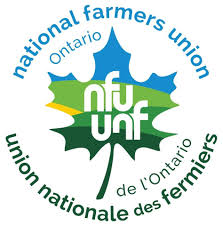Press Release
NFU
The National Farmers Union (NFU) is urging Members of Parliament to support Bill C-216, which would make it illegal for any future trade agreement to provide more foreign access to Canada’s supply-managed markets.
The supply management system stands upon three pillars: production discipline, which ensures farmers produce no more or less than the market needs; cost-of-production pricing, which ensures that farmers receive a fair income; and import control, which prevents over-supply. Bill C-216 ensures that the third pillar will remain in place.
“The Comprehensive Economic Trade Agreement with Europe (CETA), the Trans Pacific Partnership (TPP), and the Canada-United States-Mexico Agreement (CUMSA), show us why we need Bill C-216,” said Katie Ward, NFU President. “Each took a significant portion of Canada’s supply managed market away from Canadian family farmers.”
Now, Canada is negotiating trade agreements with the United Kingdom and with the Mercosur countries — Argentina, Brazil, Paraguay, Uruguay, and Venezuela – in South America.
“We need Bill C-216 now to keep our supply-managed markets off the table,” added PEI dairy farmer, Ranald MacFarlane. “The UK and Argentina are dairy exporting nations and Brazil is the world’s largest broiler chicken exporter. It is a good bet they are eyeing our supply managed markets.”
When CETA was being negotiated, it was argued that Canada had to concede to EU demands for dairy access to get more beef and pork access to Europe. Canada already had 30,000 tonnes of annual tariff-free market access for beef and pork altogether, but had exported only 1000 tonnes of beef and 100 tonnes of pork. Canada’s CETA negotiators then gave away 17,500 tonnes of Canada’s cheese market, the equivalent of the entire Nova Scotia dairy market. Yet in 2020, Canada exported just 1550 tonnes of beef and 144 tonnes of pork to Europe.
“It is plain to see that sacrificing Canada’s supply managed markets and the livelihoods of Canadian dairy, chicken, turkey and egg farmers has not helped cattle and hog farmers one bit,” said MacFarlane. “We are all farmers. We do best when we stand together.”
Every consumer dollar spent on products imported as a result of trade agreement concessions on supply management is a dollar that leaves the Canadian economy. It longer provides an income to a Canadian farmer or processing plant worker, does not contribute to agricultural research in Canada, and is not spent in our communities.
“Supply management supports Canada’s economic vitality, environmental health and social fabric. It is good policy,” said Ward. “With trade agreements negotiated behind closed doors, it is critical that our elected representatives mandate negotiators to uphold our supply management system by voting for Bill C-216 openly in Parliament.”







![Kenopic/Smith Auction [Paid Ad]](https://whitewaternews.ca/wp-content/uploads/2018/10/advertising-100x75.jpeg)

